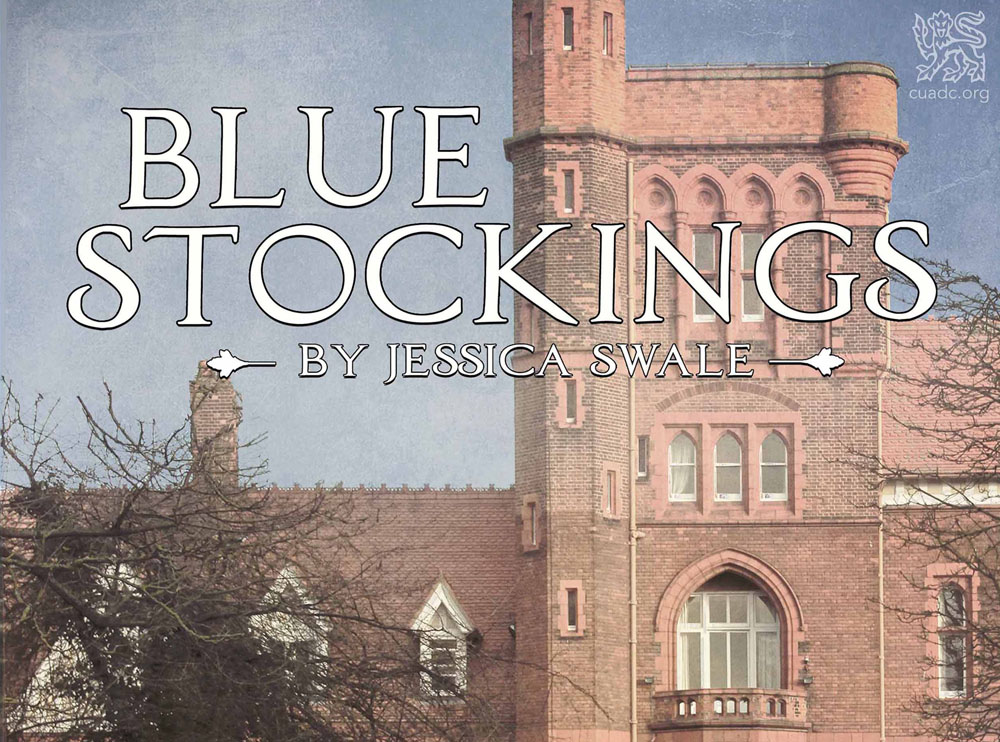The fact that the wonky social norm depicted in Blue Stockings, a play by Jessica Swale currently showing at the ADC, seems so wildly ludicrous shows how far we’ve come since the first women dared fight for an education.
Blue Stockings takes us back to 1896, where four young women have arrived at Girton College only to find themselves amidst a political minefield, where women can study (just) but not graduate, and the men believe that ‘a woman who expends her energy exercising the brain does so at the expense of her vital organs’.
The play opens with a patronising lecture about women’s fragile limitations, before introducing the four plucky protagonists: feisty astronomer Tess, well-travelled Carolyn, steady Celia and guarded Maeve. The first act is packed with inspiring seminars, bicycle-riding antics in bloomers and discussions of escaping through windows using bedsheets and the laws of physics. There’s also a particularly monstrous moment when Tess is ejected from a lecture hall for sharing her views. These darker moments of humiliation and injustice are executed perfectly and felt, I’m sure, throughout the whole room.
By the second act, however, some of the points start to feel a little laboured; the speeches lengthen and the dramatic tone raises several notches, though the final conclusion holds everyone’s attention and leaves the audience with plenty to reflect on.
The performances, however, are consistently excellent. Sarah Livingstone gives a startling performance as the harsh realities of home life catch up with her character, Maeve, and Laura Waldren provides wonderful comic relief as the bent-backed chaperone, Miss Bott, with her endless ball of wool. A fascinating glimpse into a less noble chapter of the university’s history, Blue Stockings is full of fun, fight and fury.
At times it feels like a teen drama, which in a way it is, with secret notes in the library and first discoveries of love and heartache. Though they spend most of the play as puffed up, patronising toffs, as one undergraduate hints at the prospect of a marriage of convenience, Swale suggests, fairly, that males too faced restrictions, expectations and tough decisions between head and heart.

